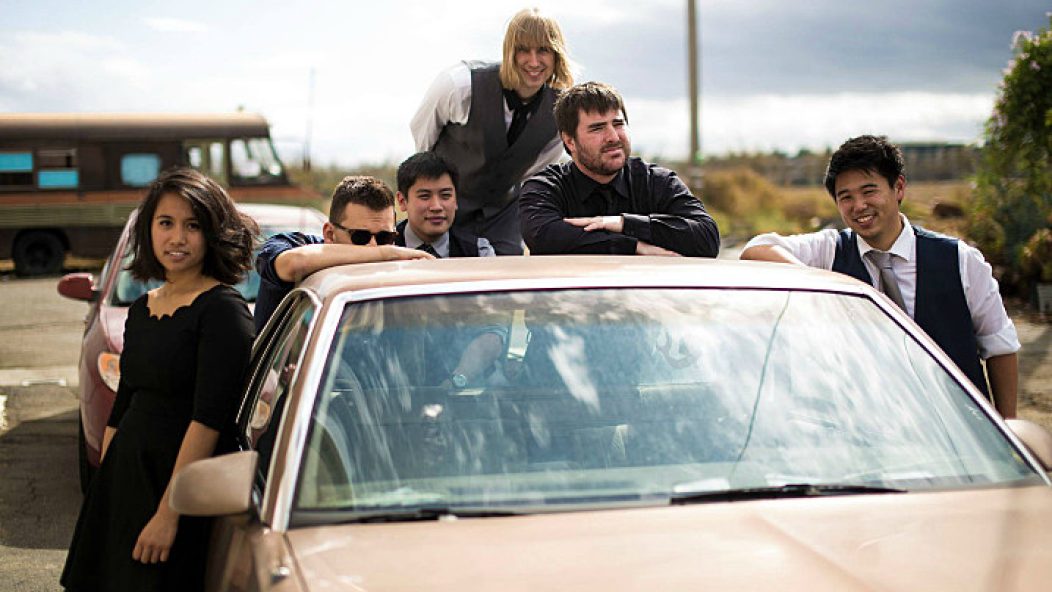
How Trace Repeat are tackling Asian American stereotypes in the music world
[Photo by: Nathan Lu Photography]
By Wesley Woo of Trace Repeat
“So, where are you really from?”
“But you’re Asians, playing funk!”
“You just… you don't look like the band I expected when I heard you guys from outside.”
Let's be honest here: Many people have no idea that racism and stereotyping has systematically affected the Asian-American community. Many others likely believe that Asian-American stereotypes exist, but I mean, come on. They're to our own benefit, right? Asians are good at math, are intelligent, and of course, know martial arts. So… what's the big deal?
Our culture is one perpetually defined by compliance. We are the quiet kids in the back of the class. The passive, submissive types who stay out of the way, the nice Chinese boy who your parents approve of; the slapstick, emasculated version of martial arts that American film has exploited for decades. And while it’s wonderful that Hollywood has finally deemed Jackie Chan worthy of a lifetime achievement Oscar, somehow, for me, that doesn’t make up for the three decades of dopey, slapstick, emasculated roles that I grew up watching him typecasted as over and over again.
Really take a moment and think about the prominent Asian-Americans you have seen in film and media. It's tough, right? What was the guy's name in Harold And Kumar? Or those guys from that “G6” song? Or even one Asian American actor?
For every time one of us makes an appearance as a leading protagonist, there are a dozen more demasculinized Asian men typecasted as that same old stereotype: the dopey sidekick; the fresh-off-the-boat buffoon; the creepy, perverted Asian dude who is equal parts obnoxious and excessively handsy. These tropes dominate our representation in film and media and are perpetuated by an industry that doesn't think Asian-Americans can believably play anything but these tropes because they never have before. It's a vicious cycle, really.
As a Chinese kid growing up in a predominantly white suburb of the Bay Area, the role models I grew up with when I was building my Asian-American identity were sparse at best. The yellow Power Ranger, the Asian kid in Indiana Jones, and, for one glorious moment, Yao Ming of the Houston Rockets. As a child of ‘90s television, this is the identity I scraped together, which is to say: not really much of anything at all.
The most defining moment for me came as a teenager, around 13 years old, when I told my parents that “I look Asian, but I'm really not, though.” I don't act or feel Asian like they do on TV, I don't do Kung Fu, I'm at best mediocre in math class, and what the heck is lion dancing?
Growing up as a musician was even more complicated. The role models I grew up with were all black icons because there were no Asian-American role models for someone like me to obsess over. It was Marvin Gaye, Stevie Wonder, the Temptations and anything Motown that my dad was listening to. By the time I was 18, I had more of a connection to David Ruffin and his giant Coke bottle glasses than any Asian-American musician, because what kind of Asian-American musician would I be, anyway? As far as I knew, there were none to speak of, so I looked elsewhere for musical idols.
These days, representation is still an uphill battle, but with small, yet definite marks of progress. Today we have Steven Yeun killing zombies on The Walking Dead, Mike Shinoda in Linkin Park and Daniel Dae Kim fighting crime. Bands like ours (Trace Repeat) gravitate toward Asian-American community groups such as Kollaboration that fight these stereotypes, supporting bands like Far East Movement, Run River North, Kina Grannis and many more. Over time, we’ve found other Asian-Americans have started to gravitate toward Trace Repeat, too. A new generation of Asian kids are inspired to create more music because, for the first time, there’s someone that looks like them up onstage.
Really, though, while Trace Repeat strives to collaborate with organizations such as Kollaboration (shout out to our Kollab SF fam!), we’re really not here to be Asian America’s newest cheerleader. In a perfect world, we'd like to just be a really great funk band. No asterisks for “Asian-American funk,” no need to qualify our particular brand of funk as “Chinese.” I think simply having the audacity to be the bold, unapologetically sexy band that we are gives us the authority to change these stereotypes. The Asian-ness that’s literally written on my face will speak for itself.
Listen to Trace Repeat's new song, “Old School Funk,” below, along with a statement from Woo:
“Old School Funk is the third single from our new album, The Oaktown Sound. It’s one of the tracks on the record that’s kind of intentionally referential to some of the 50s and 60s R&B you might hear on a James Brown or Ray Charles record. A lot of that high energy James Brown intensity, underscored by that Clyde Stubblefield ‘funky drummer’ kind of attitude in the rhythm section,” Woo explains.
“We had some fun producing it in the studio too, kind of digging into some of the ‘live’ aesthetics that you hear on those older records that really capture the attitude that those guys brought on stage every night. A little bit dirty and a little bit sassy, all at once.”
What are your thoughts on Trace Repeat’s newest single? And Wesley Woo's blog?










